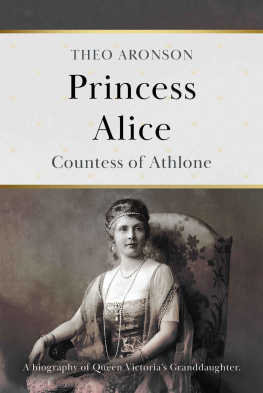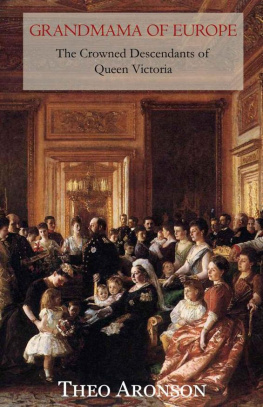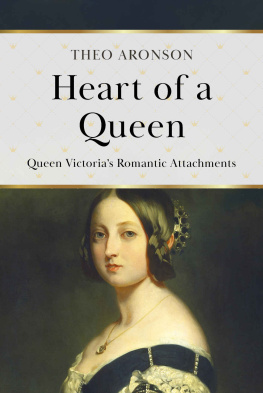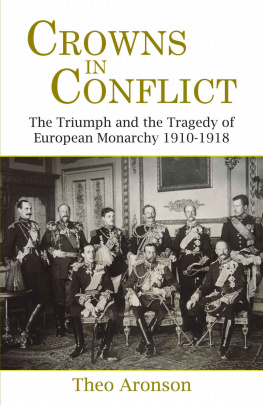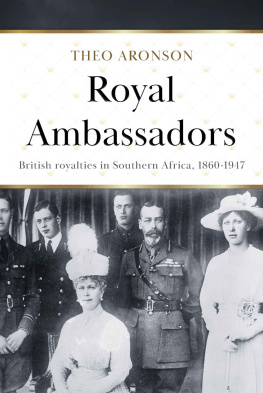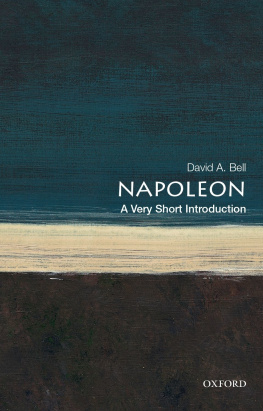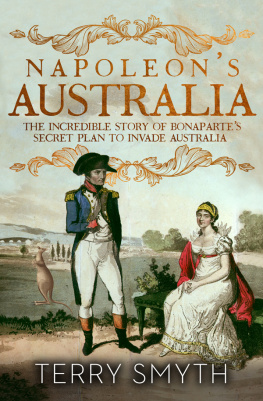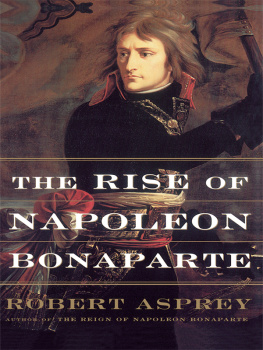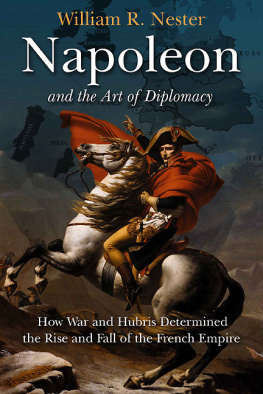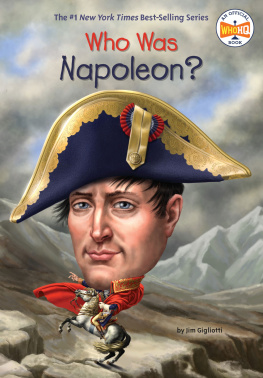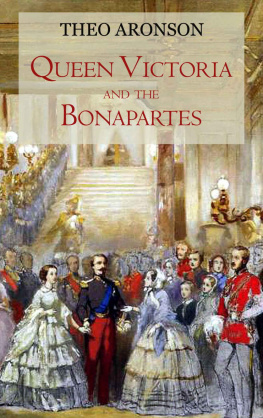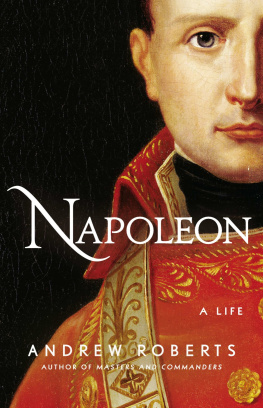THE GOLDEN BEES
The Story of the Bonapartes
Theo Aronson
First published by Oldbourne Book Co. Ltd in 1964
Copyright The Estate of Theo Aronson 1964
This edition published in 2020 by Lume Books
30 Great Guildford Street,
Borough, SE1 0HS
The right of Theo Aronson to be identified as the author of this work has been asserted by them in accordance with the Copyright, Design and Patents Act, 1988.
All rights reserved. No part of this publication may be reproduced, stored in a retrieval system, or transmitted in photocopying, recording or otherwise, without the prior permission of the copyright owner.
TO MY MOTHER
AND FATHER
Table of Contents
AUTHORS NOTE
In order to accommodate so immense a subject as the history of the Bonaparte family in one book, I have found it necessary to make certain simplifications.
In the first place, I have confined myself to the personal lives of the members of the family; this is a domestic history, not a political one. It is the familywith its eccentricities, vulgarities, and fascinations manifesting themselves in generation after generationwhich holds the center of the stage; the great political, economic and military events of the time are heard dimly, as noises off. Only when some outside event affects the family directly is it explained in any detail; otherwise it is simply mentioned en passant .
Secondly, within the family circle itself there have had to be certain shifts of emphasis. For the most part, the more famous characters have been somewhat played down and the lesser-known, but no less intriguing, personalities brought out. This is particularly true of Napoleon I. So much has been written about his stupendous career that I have concentrated on him as a son, brother, husband, father and above all, founder of a dynasty, rather than as a great public figure. The same, to a lesser degree, holds good for Napoleon III. It is with the effect of the two Emperors upon their families rather than with their effect upon the world that I have concerned myself.
I have received a great deal of help during the writing of this book, but my chief debt is to Mr. Brian Roberts. His unfailing interest, advice and encouragement have been invaluable; without them this book would never have been completed. I am indebted also to Dr. Anna Benna of the Haus-Hof-und Staatsarchiv, Vienna; to M. Gilbert Martineau, Conservateur at Longwood, St. Helena; to Dr. Killie Campbell of Durban, South Africa; to Miss A. T. Hadley of the South African State Library; to Miss Elizabeth Dey of the Johannesburg Public Library. I must thank also Mlle. J. Aurousseau, Miss E. H. Berridge, Mrs. C. Champion de Crespigny, Mrs. S. Bartlett, Miss Elizabeth Ross, Mr. Donald MacAndrew, Mr. James Ludovici and Mr. Ronald Duff. I am grateful for all the assistance which I have received in the British Museum and in libraries and newspaper libraries in London, Paris and Vienna. I must thank the South African State Library for tracking down many rare books and the Durban Public Library for making these books available to me. I am grateful to Mrs. Wilma Howes for typing my manuscript so efficiently and, in the face of many upheavals, so uncomplainingly. My final thanks are to those many people, in both Europe and Africa, who have shown me so much kindness during my various journeys in search of the material from which this book has been written.
T.A.
To whom then, am I going to leave all this?
NAPOLEON I
part one
THE YEARS BEFORE
17641804
CHAPTER ONE
Princess Mathilde Bonaparte, niece of the Great Napoleon, once claimed that had it not been for the achievements of her illustrious uncle, she would probably be selling oranges on the quayside at Ajaccio. The Princess, who could be wrong about some things, was right about this. It was due to Napoleons genius alone, and to the benefits that were heaped upon his family as a result of this genius, that his niece did not, in fact, spend her girlhood with a basket of oranges hugged to her ample hips. Whatever Napoleons faults may have beenand they were legionneglect of his family was not one of them. No founder of a dynasty could have done more for his relations than did Napoleon for his clamorous family.
In this he was typically Corsican. The population of Corsica in the mid-eighteenth century was still rigidly divided into clans; it was an island of fierce family loyalties, of burning family pride, of bloody vendettas which gathered strength from generation to generation. Any slight, real, or imagined, had to be revenged. Napoleon in later life claimed that whenever his grandmother needed support in some local misunderstanding, she could be sure of between two or three hundred armed clansmen hurrying to her aid. And when her daughter, Napoleons mother, was married in the cathedral of Ajaccio in 1764, there were over fifty male cousins on hand to escort her.
This clannishness, this almost primitive sense of kinship, was something which Napoleon never outgrew. It caused him to elevate his relations to positions far beyond their capabilities, and contributed, in no small measure, to his downfall. If he had been a less generous brother, he might have been a more successful ruler. The irony was that this streak of magnanimity, in what could otherwise be a hard and ungenerous nature, was never appreciated. Napoleons brothers and sisters accepted all that he had to give with singular ingratitude. My relations, he once exclaimed sourly to Metternich, have done me more harm than I have done them good.
They owed everything to him. The family into which Napoleon was born on August 15, 1769, was of very limited distinction and of even more limited means. Dedicated Bonapartists have been tireless in their attempts to trace Napoleons noble origins; there has even been some bland talk of his descent from the emperors of Byzantium. It is to Napoleons credit that he had no time for this particular form of flattery. I am the Rudolf of my race, he once proclaimed to the Emperor of Austria, referring to Rudolf, founder of the Hapsburg dynasty. And on another occasion he silenced some sycophantic genealogist by claiming that his patent dated back to his first battle and no further. True, on Corsica the Bonapartes were counted amongst the island gentry, but had it not been for Napoleon, it is most unlikely that they would ever have been counted as anything more. Napoleons claim, in later life, that the Bonapartes had been the Bourbons of Corsica, did not really mean very much.
His father, Carlo Buonaparte, was an advocate; his mother, Letizia Ramolino, a local beauty. Carlo could boast a university education and an uncle who was an archdeacon; Letizias father had once been inspector-general of the islands happy-go-lucky road system. Carlo had a smattering of culture and a great gloss of manner; Letizia, a becoming modesty and a sizable dowry. Except that they were both young and exceptionally handsome when they married (Ajaccios little marvel, they called her), it would have been difficult to find a more dissimilar couple. Where he was idle, easygoing, effervescent, she was industrious, disciplined, withdrawn. Where he was indulgent, trusting, open-handed, she was Spartan, suspicious, almost miserly. Where he squandered his money on embroidered waistcoats and his time on political discussions, she saved by patching and darning, and confined herself to the interests of her home and her family.
Yet their marriage was a happy one. Letizia, for all her strength of character, was enough of a Corsican to identify her own life with the life of her husband; all men had their faults, one simply had to accommodate those faults as best one could. In their twenty years of married life she bore him thirteen children, eight of whom lived. Whatever his shortcomings, Carlo Buonaparte was not lacking in the qualities of a progenitor. If his father had lived, boasted Napoleon on St. Helena, his mother would have been capable of having twenty children.
Next page


